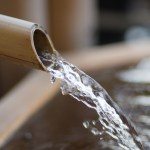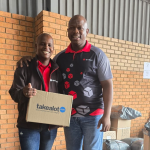The Covid-19 pandemic’s influence on education spurred Green School South Africa to launch their interactive video classes.
As a family, we had an extraordinary educational experience attending a strange, weird-and-wonderful school. It changed our perspective on education fundamentally.
It made us question why we send our kids to school, what it is that we wish them to learn, what they will need when leaving school in the 2030s. What we dream for their futures, the kind of adults we hope they will become and lives they will lead.
In lockdown, we all have strange encounters with education. Suddenly, I realised that my three kids’ concentration spans vary greatly when it comes to doing repetitive maths – concentration spans that seem endless when they are watching YouTube, when we are sharing family stories or talking about birthday arrangements.
Coaching my older ones who are comfortable tackling their homework is easy, but my youngest one really does NOT want to do that homework. Now I have the option of either leaving it completely and risk falling ‘behind’ with academics, or enter into daily discussion, debate and screaming fits. Ugh.
Answering that persistent question – WHY do I have to learn this? WHY do I have to do these sums over and over? What is the point of knowing what adverbs and adjectives are? And really, as a parent, I’m not equipped to answer it. I really don’t know why we have to know word types, my reasons run out and eventually end up with “You have to. It is in your book and the teacher says so”. How horrible! It makes me feel inadequate to guide my child through this journey, and it does not help to motivate her to learn it!
Getting back to our experience – we attended Green School Bali.
While there, the kids did not want to leave the school grounds, they were excited on a Sunday to return to school on a Monday, and there was never tummy ache.
We asked the teachers why. What happens at school that intrigues and excites our kids to this extent? We found solid research and academic rigour backing up the learning experience. When you make academic concepts real, hands-on, practical and relevant, it is possible to transform a tedious, boring topic into a fantastically exciting, almost magical experience.
To give an example: my grade 3 child did measurement units in math. The lesson started with a story of frogs that lived in a nearby river. In the river, there was a little whirlpool and when they fell in, they couldn’t get out and would die. There are a couple of problems here: water quality, the stench in the air, and the poor frogs. So what if we build little bamboo ladders to help them get out?
The children were super excited about this plan! They measured the distance from the class to the river in meters and strides. This prompted a discussion about personal height, size of your natural stride, meters and yards. Then they built little bamboo ladders of 30cms tall and steps every 5 cms. They had to drill little holes, cut bamboo and assemble the ladder (many measurements with a ruler, making marks, double-checking, making mistakes, fixing them). They then took their ladders to the river and watched if the frogs could escape.
A fantastic lesson about measurement units that will never be forgotten.
Three years in the making, we are now building a Green School in Paarl, and just before lockdown the foundations were laid for 16 classrooms and admin building, the heart of school-building with a library, art and music rooms.
Imagine, bringing an international school to Paarl, a bilingual Afrikaans/English international school. With an international curriculum, a principal with 35 years of experience, a future-oriented curriculum that seriously considers how 21st-century skills are incorporated into our learning experience and a focus on sustainability, community, identity and leading a life of purpose.
If I can help my child find purpose in what she’s learning, where content is meaningful and relevant, we won’t have to grind or fight to get through it. This could answer the question of what we should learn and why we should go to school.
When lockdown started and everybody’s worlds changed, we considered whether it would be possible to create an online educational experience similar to the experience we had in Bali. Crazy thought, but this week, we are launching just that. A thematic, student-centred, live, interactive online educational experience.
We are running courses in all key mathematical and language concepts and skills, courses meant to tickle our kids’ imagination, to show how much more there is to explore in the world, to create a sense of wonder.
Physical presence cannot be replaced by a screen, but making new friends, laughing with each other, listening to questions and working together online can go some way to satisfy our need for human interaction.
We wish for everyone to have some reflection on education. We hope that parents and educators find this time helpful in defining what we as a society want from our children’s education. There is much to improve on, and maybe this time gives us a break and nudge to inspire innovation, creativity and positive change.
If you wish to find out more about this online programme, called the Explorers’ Club, click on this link. We’ll be happy to share our excitement and optimism for the future of education with you. DM
ABOUT GREEN SCHOOL SOUTH AFRICA:
Green School South Africa is part of an international network of Green Schools, following the Green School curriculum. We have carefully referenced the South African, Singapore, New Zealand and American curricula in all the core subjects to ensure that academic standards are in line with best practice locally and internationally.
ABOUT THE PRINCIPAL:
Andy Wood has been appointed Head of School. During his 15 year career as a Principal, Andy has led large international schools in Dubai and the Bahamas in addition to South African private schools. He has been the founding Principal of two South African schools that are thriving today: the International School in Hout Bay and Seaforth College (now renamed Ashton International) in Ballito. Whilst in Dubai he led his school successfully through its Council for International Schools, New England Association of Schools and Colleges and International Baccalaureate accreditation processes. Andy brings the balance of sound experience with a willingness to take on the exciting challenge of establishing a new school that will be unique in its approach to education.


















 Become an Insider
Become an Insider